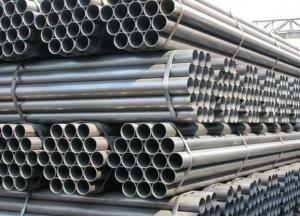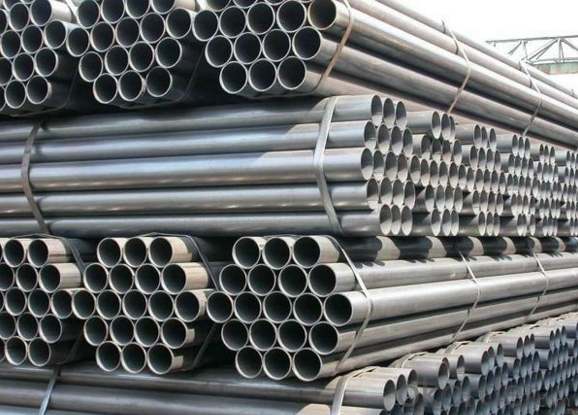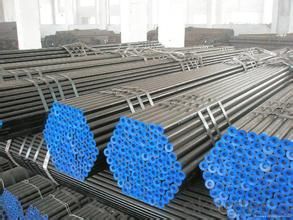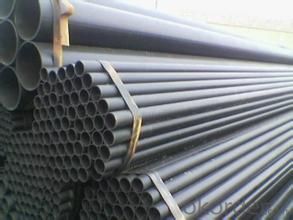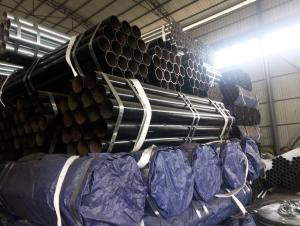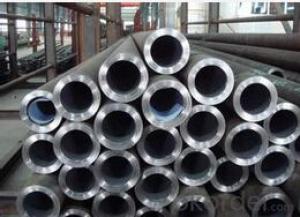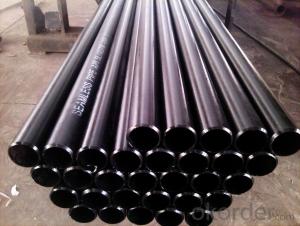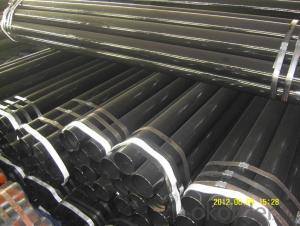Seamless Carbon And Alloy Steel pipe for sell
- Loading Port:
- Tianjin
- Payment Terms:
- TT or LC
- Min Order Qty:
- 40 m.t
- Supply Capability:
- 5000 m.t/month
OKorder Service Pledge
OKorder Financial Service
You Might Also Like
Specification
1、Structure of Seamless Carbon And Alloy Steel pipe for sell
Seamless pipe is formed by drawing a solid billet over a piercing rod to create the hollow shell. As the manufacturing process does not include any welding, seamless pipes are perceived to be stronger and more reliable. Historically seamless pipe was regarded as withstanding pressure better than other types, and was often more easily available than welded pipe.
2、Main Features of Seamless Carbon And Alloy Steel pipe for sell:
• Small inertia resistance
• Strong heat dissipation ability
• Good visual effect
• Reasonable price
3、Seamless Carbon And Alloy Steel pipe for sellSpecification:
Standard | GB, DIN, ASTM ASTM A106-2006, ASTM A53-2007 |
Grade | 10#-45#, 16Mn 10#, 20#, 45#, 16Mn |
Thickness | 8 - 33 mm |
Section Shape | Round |
Outer Diameter | 133 - 219 mm |
Place of Origin | Shandong, China (Mainland) |
Secondary Or Not | Non-secondary |
Application | Hydraulic Pipe |
Technique | Cold Drawn |
Certification | API |
Surface Treatment | factory state or painted black |
Special Pipe | API Pipe |
Alloy Or Not | Non-alloy |
Length | 5-12M |
Outer Diameter | 21.3-610mm |
Grade | 20#, 45#, Q345, API J55, API K55, API L80, API N80, API P110, A53B |
Standard | ASME, ASTM |
1) Material:20#(ASTM A 106/A53 GRB.API5LGRB,GB),45#,16Mn,10#.
2) Specification range:OD:21.3-610mm,WT:6-70mm,length:6-12m or according to the requirement of clients.
3) Excutive standards:GB,ASME API5L.ASTM A 106/A53,Despite of the above standards,we can also supply seamless steel pipe with standard of DIN,JIS,and so on,and also develop new products according to the requirements of our clients!
4) Surface:black lacquered,varnish coating or galvanized.
5) Ends:Beveled or square cut,plastic capped,painted.
6) Packing:bundles wrapped with strong steel strip,seaworthy packing.
4、Packaging & Delivery
Packaging Details: | seaworthy package,bundles wrapped with strong steel strip |
Delivery Detail: | 15-30days after received 30%TT |
5、FAQ of Seamless Carbon And Alloy Steel pipe for sell:
①How is the quality of your products?
Our products are manufactured strictly according to national and internaional standard, and we take a test
on every pipe before delivered out. If you want see our quality certifications and all kinds of testing report, please just ask us for it.
Guaranteed: If products’ quality don’t accord to discription as we give or the promise before you place order, we promise 100% refund.
②How about price?
Yes, we are factory and be able to give you lowest price below market one, and we have a policy that “ for saving time and absolutely honest business attitude, we quote as lowest as possible for any customer, and discount can be given according to quantity”,if you like bargain and factory price is not low enough as you think, just don’t waste your time.Please trust the quotation we would give you, it is professional one.
③Why should you chose us?
Chose happens because of quality, then price, We can give you both.Additionally, we can also offer professional products inquiry, products knowledge train(for agents), smooth goods delivery, exellent customer solution proposals.Our service formula: good quality+good price+good service=customer’s trust
SGS test is available, customer inspection before shipping is welcome, third party inspection is no problem.
6、Seamless Carbon And Alloy Steel pipe for sellI mages:
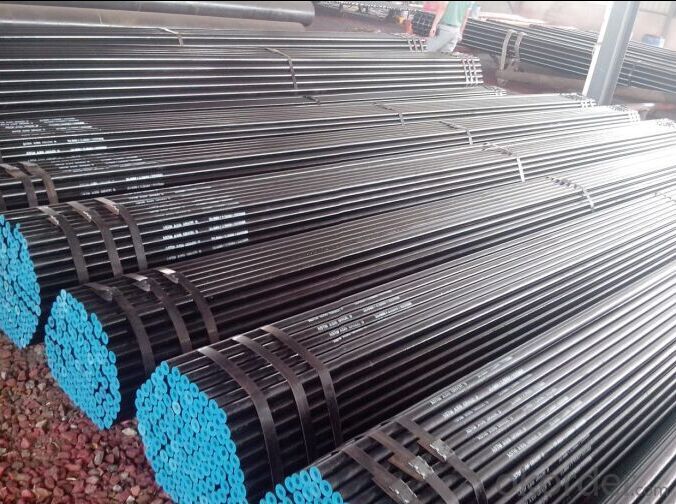
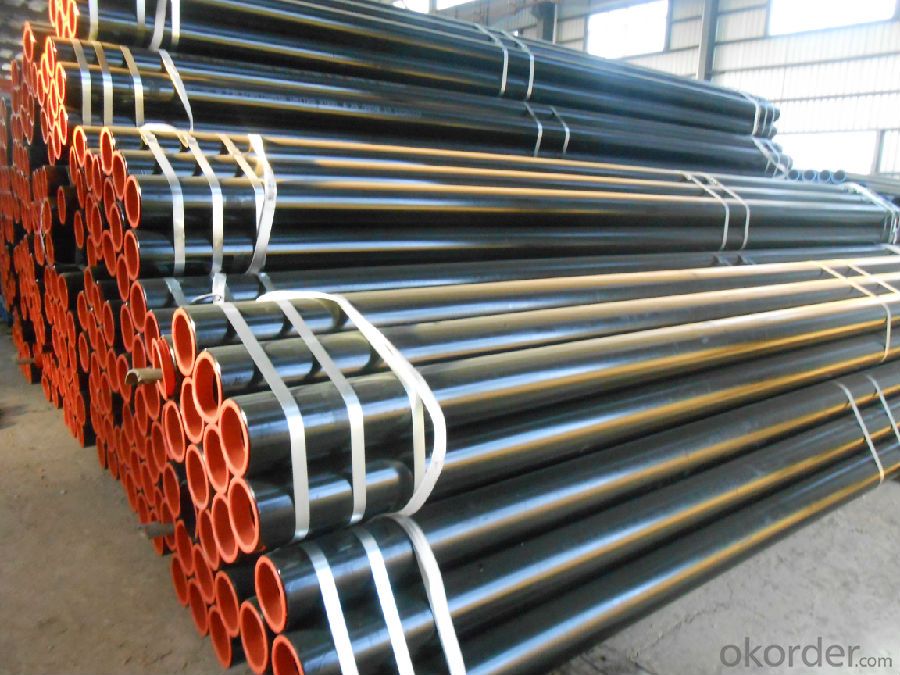
- Q: Can steel pipes be threaded?
- Yes, steel pipes can be threaded.
- Q: How are steel pipes inspected for compliance with industry standards?
- Steel pipes are inspected for compliance with industry standards through various methods such as visual examination, non-destructive testing techniques like ultrasonic testing, magnetic particle inspection, and radiography. These inspections help ensure that the pipes meet required specifications and quality standards, ensuring their integrity and safety for use in various industries.
- Q: What are the industries that commonly use steel pipes?
- Some of the industries that commonly use steel pipes include oil and gas, construction, manufacturing, automotive, infrastructure, water treatment, and plumbing.
- Q: Can steel pipes be used for the construction of railway tracks?
- No, steel pipes cannot be used for the construction of railway tracks. Railway tracks are typically made of steel rails that are specifically designed and manufactured for this purpose. Steel pipes lack the necessary shape, strength, and dimensions required for supporting heavy loads and facilitating the smooth movement of trains.
- Q: What are the advantages of using steel pipes in the manufacturing of appliances?
- There are several advantages of using steel pipes in the manufacturing of appliances. Firstly, steel pipes are extremely durable and can withstand high pressures, making them ideal for applications that require strength and resilience. Secondly, steel pipes have excellent corrosion resistance, ensuring that the appliances will last longer without succumbing to rust or degradation. Additionally, steel pipes have a smooth interior surface, which minimizes friction and allows for efficient flow of fluids or gases within the appliances. Lastly, steel pipes are readily available and cost-effective, making them a practical choice for appliance manufacturers.
- Q: Can steel pipes be used in high-pressure applications?
- Yes, steel pipes can be used in high-pressure applications. Steel pipes are known for their strength and durability, making them suitable for handling high pressures in various industries such as oil and gas, water distribution, and chemical processing.
- Q: What are the different types of steel pipe fittings for chemical processing plants?
- There are various types of steel pipe fittings used in chemical processing plants, including but not limited to, elbows, tees, reducers, flanges, and couplings. These fittings are designed to connect and control the flow of fluids within the piping system, ensuring safe and efficient operation in industrial settings.
- Q: Can steel pipes be recycled after their useful life?
- Yes, steel pipes can be recycled after their useful life. Steel is a highly recyclable material, and this includes steel pipes. Recycling steel pipes involves collecting the used pipes, cleaning them to remove any contaminants, and then processing them into new steel products. The recycling process helps to conserve natural resources, reduce energy consumption, and minimize waste. Additionally, recycling steel pipes helps to reduce the environmental impact associated with the production of new steel.
- Q: What is the lifespan of galvanized steel pipes?
- The lifespan of galvanized steel pipes can vary depending on various factors such as the quality of the galvanization, the environment in which they are installed, and the maintenance they receive. However, on average, galvanized steel pipes can last between 40 to 70 years.
- Q: How are steel pipes used in transportation?
- Steel pipes are commonly used in transportation for various purposes, such as in the construction of pipelines for transporting oil, gas, and water. They are also utilized in manufacturing vehicles, ships, and airplanes, where they serve as structural components or exhaust systems. Additionally, steel pipes are employed in the transportation of goods through conveyor systems and in the construction of railings and barriers for safety on roads and bridges.
Send your message to us
Seamless Carbon And Alloy Steel pipe for sell
- Loading Port:
- Tianjin
- Payment Terms:
- TT or LC
- Min Order Qty:
- 40 m.t
- Supply Capability:
- 5000 m.t/month
OKorder Service Pledge
OKorder Financial Service
Similar products
Hot products
Hot Searches
Related keywords
